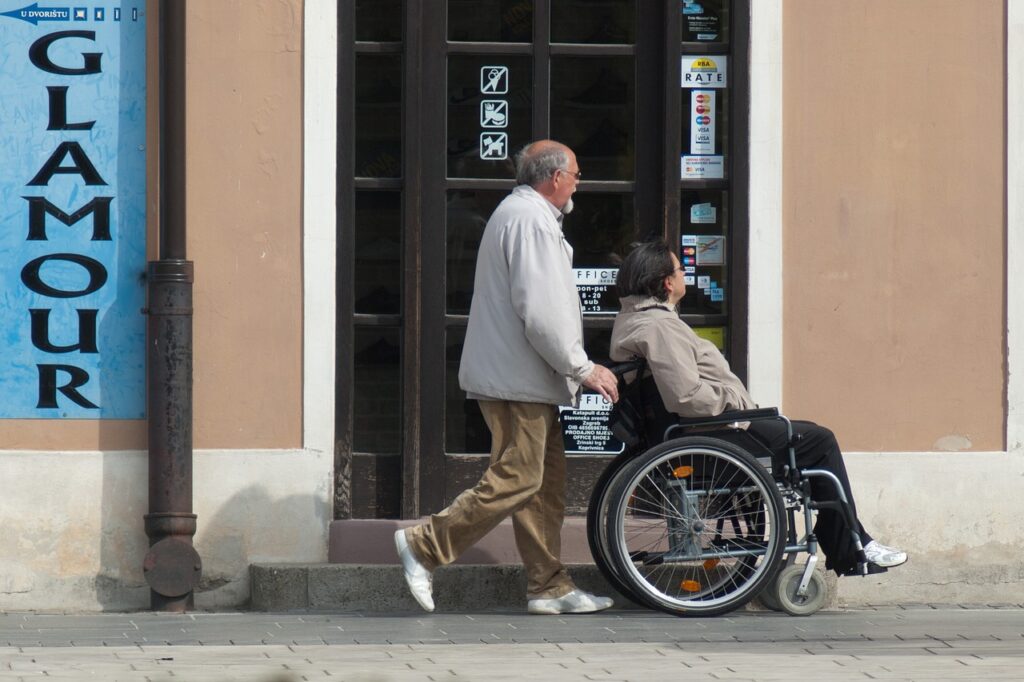Advocating for Health Policy Reforms to Improve BME Patient Care
Our Project for Health Policy Advocacy
The Advocating for Health Policy Reforms to Improve BME Patient Care project is dedicated to addressing these issues through targeted advocacy and collaboration with key stakeholders. Our project will focus on four main areas of intervention:
- Promoting Equitable Access to Healthcare Services
- Enhancing Cultural Competence and Anti-Bias Training
- Increasing Representation in the Healthcare Workforce
- Collaborating with Policymakers and Community Organizations
These interventions aim to create a healthcare system that is not only accessible to BME communities but also inclusive, respectful, and attuned to their unique needs.
Project Implementation
- Promoting Equitable Access to Healthcare Services
Access to healthcare is a fundamental right, yet many BME individuals face barriers to quality care. We will advocate for policies that ensure healthcare services are accessible to all, regardless of race, ethnicity, or socioeconomic status.
- Expanding Access to Preventive Services: Preventive healthcare services, such as screenings and vaccinations, are often underutilized in BME communities due to financial constraints or a lack of awareness. We will push for policies that expand access to these services, including subsidizing preventive care for low-income families and providing mobile health clinics in underserved areas.
- Supporting Multilingual Services and Health Literacy Programs: Language barriers prevent many BME individuals from understanding their healthcare options. To address this, we will advocate for policies that require healthcare facilities to offer multilingual support and provide interpreters for non-native speakers. Additionally, health literacy programs can empower individuals to navigate the healthcare system confidently.
- Addressing Geographical Barriers: BME communities often live in urban areas with limited access to healthcare facilities or in rural regions where services are scarce. We will advocate for the establishment of more healthcare facilities in underserved areas and the use of telemedicine to reach remote communities, ensuring that geographic location does not prevent access to care.
- Enhancing Cultural Competence and Anti-Bias Training
Culturally competent care is essential for meeting the needs of diverse populations. We will work to make cultural competence and anti-bias training mandatory for healthcare providers, ensuring that BME patients receive respectful and empathetic care.
- Mandatory Cultural Competence Training: Training healthcare professionals in cultural competence will help them understand and appreciate the values, beliefs, and behaviors of BME communities. Our project will advocate for mandatory cultural competence training in medical schools and healthcare facilities, covering topics such as cultural norms, communication styles, and traditional healing practices.
- Implementing Anti-Bias Policies: Implicit bias in healthcare can lead to differential treatment, with BME patients often receiving substandard care. We will advocate for policies that require anti-bias training and encourage healthcare providers to examine their biases, fostering an environment of equality and respect.
- Creating Cultural Liaisons: In partnership with healthcare facilities, we will promote the role of cultural liaisons, who can act as intermediaries between healthcare providers and BME patients. These liaisons can help facilitate communication, provide cultural context, and ensure that patients’ needs are understood and respected.
- Increasing Representation in the Healthcare Workforce
A diverse healthcare workforce can improve patient trust and satisfaction, as individuals are more likely to feel understood by providers who share similar backgrounds or experiences. Our project will focus on increasing BME representation in healthcare through advocacy and targeted programs.
- Diversity in Medical Education: We will work with educational institutions to encourage diversity in medical school admissions, supporting initiatives that attract students from BME backgrounds. This can be achieved through scholarships, mentorship programs, and partnerships with BME community organizations.
- Inclusive Hiring Practices in Healthcare Facilities: In collaboration with healthcare organizations, we will advocate for inclusive hiring practices that prioritize diversity and equity. This includes creating recruitment programs for BME individuals and offering internships or job-shadowing opportunities in hospitals and clinics.
- Mentorship and Professional Development: Supporting BME individuals in their healthcare careers is essential for long-term representation. We will advocate for mentorship programs that pair BME healthcare professionals with experienced mentors, fostering career growth and leadership skills.
- Collaborating with Policymakers and Community Organizations
Advocacy for health policy reform requires collaboration with government agencies, non-profit organizations, and community groups. By working with these stakeholders, we can build a united front for change and ensure that the voices of BME communities are heard.
- Engaging with Policymakers for Legislative Change: Our team will meet with policymakers to discuss the specific needs of BME communities and the importance of health policy reform. We will advocate for legislation that promotes healthcare equity, anti-discrimination measures, and increased funding for BME-focused health programs.
- Partnering with Community Organizations: Community organizations play a vital role in supporting BME individuals. We will collaborate with these organizations to develop joint initiatives, share resources, and engage community members in advocating for change. This partnership will help raise awareness of healthcare issues and empower communities to take action.
- Organizing Public Awareness Campaigns: Awareness is key to driving change. We will organize public awareness campaigns that highlight the healthcare challenges faced by BME communities, encouraging public support for health policy reform. These campaigns will include workshops, webinars, and social media initiatives that educate people about the importance of equitable healthcare.
Expected Outcomes
Through our advocacy efforts, we aim to achieve several key outcomes:
- Increased Access to Healthcare Services for BME Communities: By addressing economic, linguistic, and geographical barriers, we hope to create a healthcare system that is accessible to all, regardless of background or financial status.
- Improved Quality of Care for BME Patients: Cultural competence and anti-bias training will enhance the quality of care provided to BME patients, reducing disparities and fostering trust in the healthcare system.
- Greater Diversity and Inclusion in the Healthcare Workforce: A more diverse healthcare workforce will not only improve patient satisfaction but also bring new perspectives to the medical field, enhancing care for all patients.
- Strengthened Advocacy Network for BME Health Rights: Through partnerships with policymakers and community organizations, we aim to build a strong network of advocates dedicated to promoting healthcare equity and protecting the rights of BME individuals.
Conclusion
Advocating for health policy reforms to improve BME patient care is a vital step toward achieving healthcare equity. BME communities face unique challenges in accessing quality healthcare, and addressing these challenges requires systemic change. By promoting equitable access to healthcare, enhancing cultural competence, increasing workforce diversity, and collaborating with key stakeholders, we can create a healthcare system that respects, includes, and serves everyone.
Your support is crucial in making this vision a reality. By donating to this cause, you are helping us advocate for policies that will ensure BME individuals receive the care they deserve.
Our Project for Health Policy Advocacy
The Advocating for Health Policy Reforms to Improve BME Patient Care project is dedicated to addressing these issues through targeted advocacy and collaboration with key stakeholders. Our project will focus on four main areas of intervention:
- Promoting Equitable Access to Healthcare Services
- Enhancing Cultural Competence and Anti-Bias Training
- Increasing Representation in the Healthcare Workforce
- Collaborating with Policymakers and Community Organizations
These interventions aim to create a healthcare system that is not only accessible to BME communities but also inclusive, respectful, and attuned to their unique needs.
Project Implementation
- Promoting Equitable Access to Healthcare Services
Access to healthcare is a fundamental right, yet many BME individuals face barriers to quality care. We will advocate for policies that ensure healthcare services are accessible to all, regardless of race, ethnicity, or socioeconomic status.
- Expanding Access to Preventive Services: Preventive healthcare services, such as screenings and vaccinations, are often underutilized in BME communities due to financial constraints or a lack of awareness. We will push for policies that expand access to these services, including subsidizing preventive care for low-income families and providing mobile health clinics in underserved areas.
- Supporting Multilingual Services and Health Literacy Programs: Language barriers prevent many BME individuals from understanding their healthcare options. To address this, we will advocate for policies that require healthcare facilities to offer multilingual support and provide interpreters for non-native speakers. Additionally, health literacy programs can empower individuals to navigate the healthcare system confidently.
- Addressing Geographical Barriers: BME communities often live in urban areas with limited access to healthcare facilities or in rural regions where services are scarce. We will advocate for the establishment of more healthcare facilities in underserved areas and the use of telemedicine to reach remote communities, ensuring that geographic location does not prevent access to care.
- Enhancing Cultural Competence and Anti-Bias Training
Culturally competent care is essential for meeting the needs of diverse populations. We will work to make cultural competence and anti-bias training mandatory for healthcare providers, ensuring that BME patients receive respectful and empathetic care.
- Mandatory Cultural Competence Training: Training healthcare professionals in cultural competence will help them understand and appreciate the values, beliefs, and behaviors of BME communities. Our project will advocate for mandatory cultural competence training in medical schools and healthcare facilities, covering topics such as cultural norms, communication styles, and traditional healing practices.
- Implementing Anti-Bias Policies: Implicit bias in healthcare can lead to differential treatment, with BME patients often receiving substandard care. We will advocate for policies that require anti-bias training and encourage healthcare providers to examine their biases, fostering an environment of equality and respect.
- Creating Cultural Liaisons: In partnership with healthcare facilities, we will promote the role of cultural liaisons, who can act as intermediaries between healthcare providers and BME patients. These liaisons can help facilitate communication, provide cultural context, and ensure that patients’ needs are understood and respected.
- Increasing Representation in the Healthcare Workforce
A diverse healthcare workforce can improve patient trust and satisfaction, as individuals are more likely to feel understood by providers who share similar backgrounds or experiences. Our project will focus on increasing BME representation in healthcare through advocacy and targeted programs.
- Diversity in Medical Education: We will work with educational institutions to encourage diversity in medical school admissions, supporting initiatives that attract students from BME backgrounds. This can be achieved through scholarships, mentorship programs, and partnerships with BME community organizations.
- Inclusive Hiring Practices in Healthcare Facilities: In collaboration with healthcare organizations, we will advocate for inclusive hiring practices that prioritize diversity and equity. This includes creating recruitment programs for BME individuals and offering internships or job-shadowing opportunities in hospitals and clinics.
- Mentorship and Professional Development: Supporting BME individuals in their healthcare careers is essential for long-term representation. We will advocate for mentorship programs that pair BME healthcare professionals with experienced mentors, fostering career growth and leadership skills.
- Collaborating with Policymakers and Community Organizations
Advocacy for health policy reform requires collaboration with government agencies, non-profit organizations, and community groups. By working with these stakeholders, we can build a united front for change and ensure that the voices of BME communities are heard.
- Engaging with Policymakers for Legislative Change: Our team will meet with policymakers to discuss the specific needs of BME communities and the importance of health policy reform. We will advocate for legislation that promotes healthcare equity, anti-discrimination measures, and increased funding for BME-focused health programs.
- Partnering with Community Organizations: Community organizations play a vital role in supporting BME individuals. We will collaborate with these organizations to develop joint initiatives, share resources, and engage community members in advocating for change. This partnership will help raise awareness of healthcare issues and empower communities to take action.
- Organizing Public Awareness Campaigns: Awareness is key to driving change. We will organize public awareness campaigns that highlight the healthcare challenges faced by BME communities, encouraging public support for health policy reform. These campaigns will include workshops, webinars, and social media initiatives that educate people about the importance of equitable healthcare.
Expected Outcomes
Through our advocacy efforts, we aim to achieve several key outcomes:
- Increased Access to Healthcare Services for BME Communities: By addressing economic, linguistic, and geographical barriers, we hope to create a healthcare system that is accessible to all, regardless of background or financial status.
- Improved Quality of Care for BME Patients: Cultural competence and anti-bias training will enhance the quality of care provided to BME patients, reducing disparities and fostering trust in the healthcare system.
- Greater Diversity and Inclusion in the Healthcare Workforce: A more diverse healthcare workforce will not only improve patient satisfaction but also bring new perspectives to the medical field, enhancing care for all patients.
- Strengthened Advocacy Network for BME Health Rights: Through partnerships with policymakers and community organizations, we aim to build a strong network of advocates dedicated to promoting healthcare equity and protecting the rights of BME individuals.
Conclusion
Advocating for health policy reforms to improve BME patient care is a vital step toward achieving healthcare equity. BME communities face unique challenges in accessing quality healthcare, and addressing these challenges requires systemic change. By promoting equitable access to healthcare, enhancing cultural competence, increasing workforce diversity, and collaborating with key stakeholders, we can create a healthcare system that respects, includes, and serves everyone.
Your support is crucial in making this vision a reality. By donating to this cause, you are helping us advocate for policies that will ensure BME individuals receive the care they deserve.




